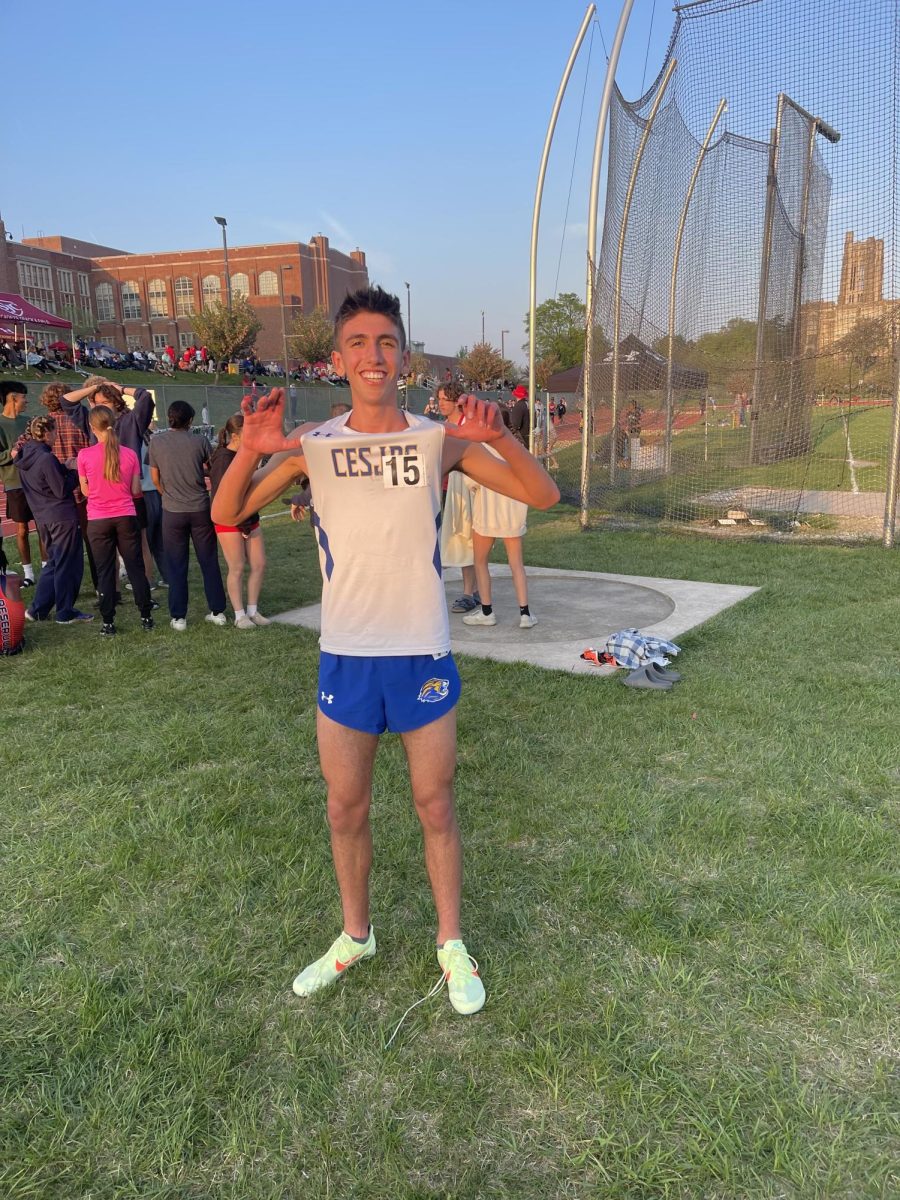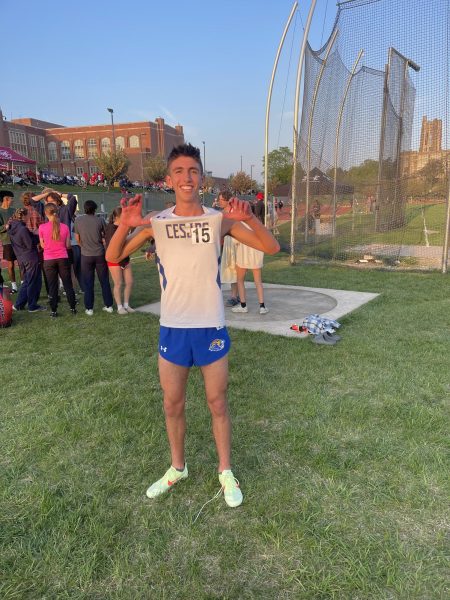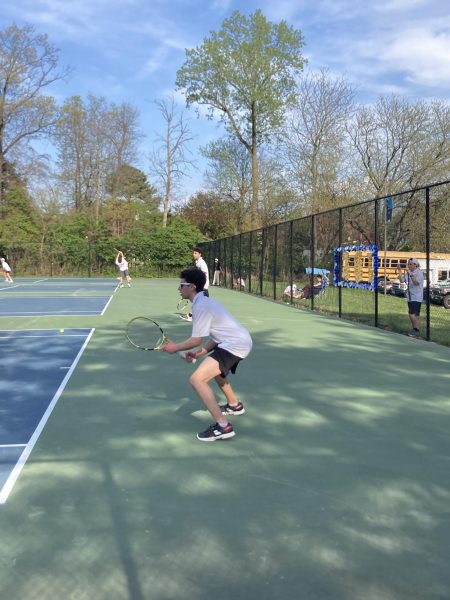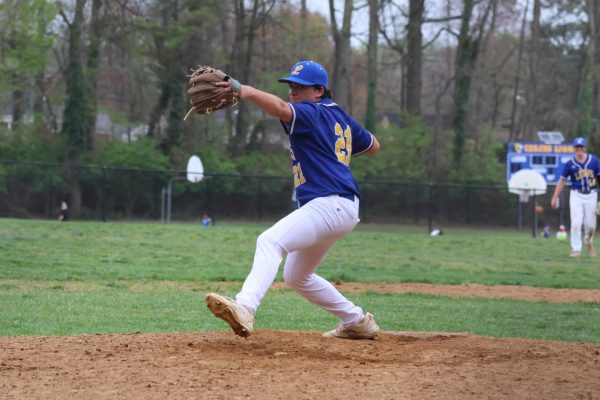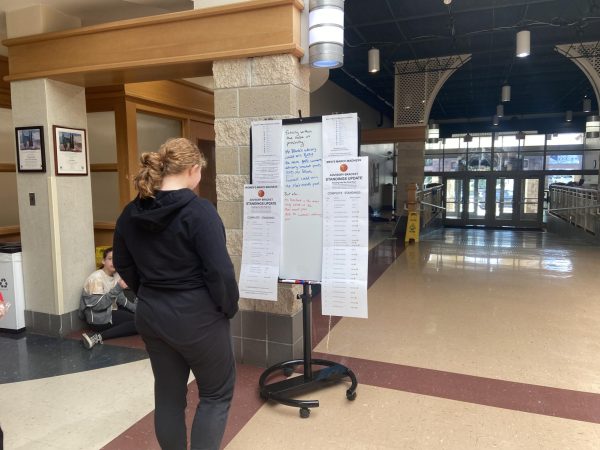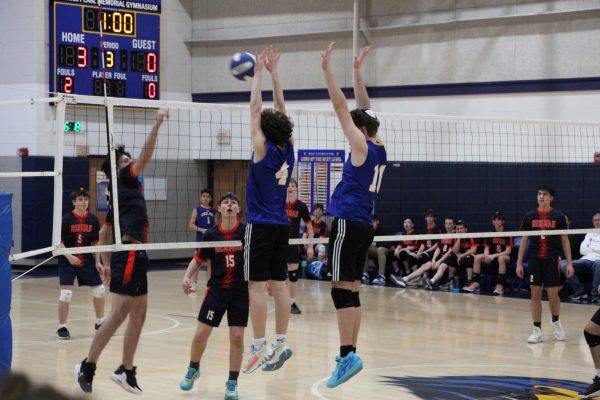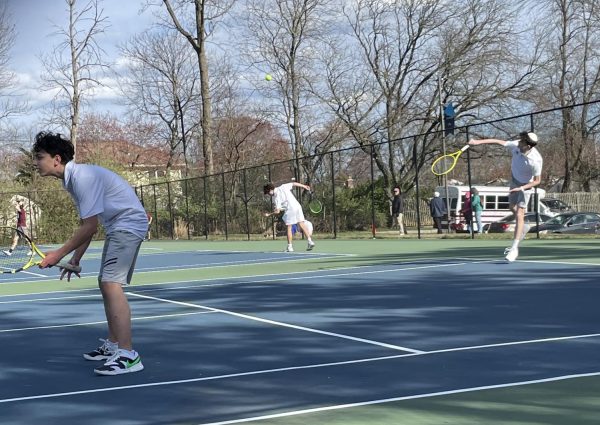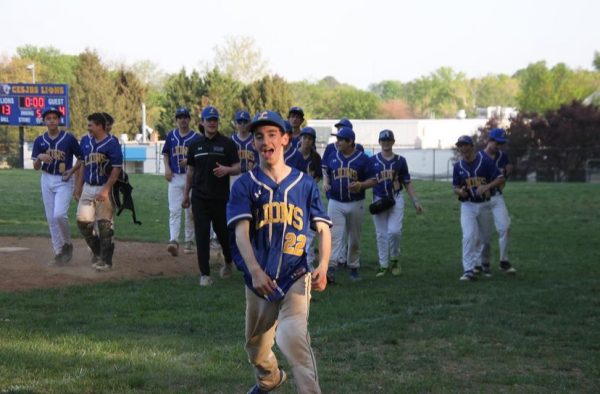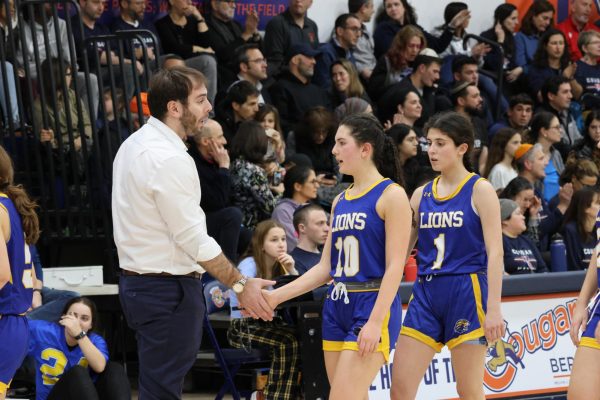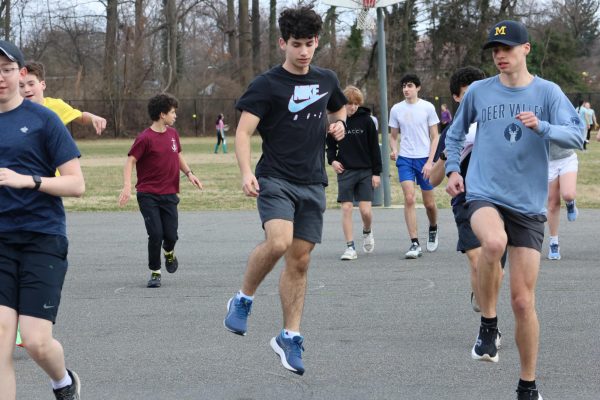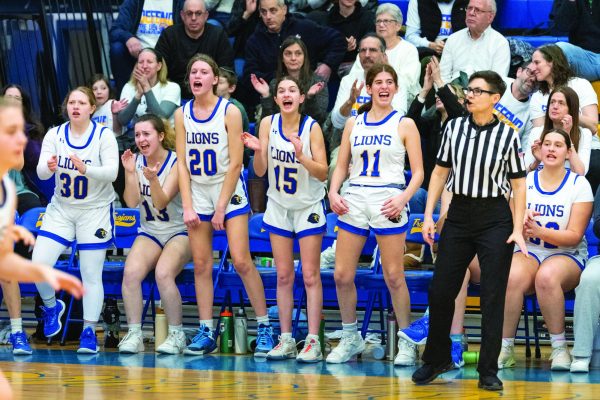Is sports success worth school stress?
Walking the line between academics and athletics
photos provided by Sivan Shilo and Bennett Bramson.
Left: Junior Sara Hughes fights for the ball during a soccer match. Right: Junior Sara Hughes takes notes during Spanish class.
March 11, 2016
It was 3 p.m. when junior Sara Hughes, a member of the CESJDS girls varsity basketball team, stood up and subtly left her last class of the day. Along with the rest of the team, she needed time to pack her bags before getting on the bus for yet another away game. Such procedures are not uncommon for student-athletes at JDS.
As a member of the girls varsity soccer, girls varsity basketball, and varsity track and field teams, Hughes misses class at least once a week during sports seasons. Despite this frequency, Hughes usually does not stress when it comes to missing school for sports.
“Leaving school early for a [game] is not that big of a deal because you can just make the work up and meet with your teachers after or before [leaving school] and it will be okay,” Hughes said.
Hughes, however, finds that her stress levels “build up” whenever she misses a test or large assignment due to sports. In an effort to avoid any additional anxiety, Hughes employs a variety of organizational methods.
“I plan all of my stuff out beforehand, and if I’m missing a test then I write it in my planner or on my calendar online and make sure that I have everything organized for when I have to do it,” Hughes said.
Hughes makes sure to communicate with teachers if she has to leave school early for a sporting event. When she knows that she is missing part of a class, she goes over the material she will miss with her teacher.
Similar to Hughes, sophomore Matthew Landy, a member of the boys junior varsity basketball and varsity baseball teams, finds that missed class time almost never leads to stress unless he misses a test or large assignment.
“Even if I do miss some class, I don’t feel like I’m behind,” Landy said. “I feel like I’m at the same pace and level as everyone else because I make sure that I contact a friend or a teacher and do the work that I missed.”
Landy began participating in JDS sports teams when he was in sixth grade, and has been leaving school early for sports games ever since. He finds that when he does miss work, it is usually minor and does not take too long to complete. If he does miss a large assignment, he emails his teachers in order to catch up.
Both Landy and Hughes believe that communicating with teachers is an effective method to make up missed class work. Jewish History teacher Aaron Bregman affirms this view.
Bregman believes that communicating with teachers is one of the best ways that a student can balance missed work with sports. He understands that students have to miss class throughout the year, and is always willing to catch his students up on missed material.
While Bregman wants to help his students catch up on missed classwork, he puts full responsibility on the students. If they do not take it upon themselves to communicate with him, Bregman cannot help them.
“Do I think it would be beneficial if kids could stay the entire day? Yes. Do I understand why they leave early? Yes,” Bregman said. “But, do I think kids have learned the responsibility to follow up with teachers when they do have to leave early? No.”
Girls varsity basketball coach Azhar Shamsudeen also acknowledges the importance of student-athletes focusing on academics. He believes that academics should come first for his players, as it is critical to succeed both on and off the court. Due to the emphasis on academics and the stress that can come with being a student-athlete, Shamsudeen has his own ways of helping players out.
“I stress [keeping up with work] in practice and give rest days during busy weeks to ensure that they catch up on academics,” Shamsudeen said in an email. “If a student stresses that they cannot leave a class due to academic responsibilities, I will take it upon myself to work with the student and the teacher to [come to] a solution. If a resolution cannot be reached then academics come first.”
Shamsudeen finds that his players are often very punctual when it comes to doing work and even relish taking on such challenges. He frequently notices his players working whenever they can and encourages this practice. Whether it be on the bus going to a game, watching another game or even waiting to leave, Shamsudeen always sees the team hard at work.
As one of Shamsudeen’s players, Hughes has learned the importance of staying on top of her work. Although academics are her main priority, it boils down to one goal: staying focused on the task at hand. Whether it be completing an assignment or playing a sport, Hughes makes sure she is always on track.
“If I’m not missing a lot [of class] then I don’t get stressed out,” Hughes said. “I just try to focus on the big game that’s coming up.”





